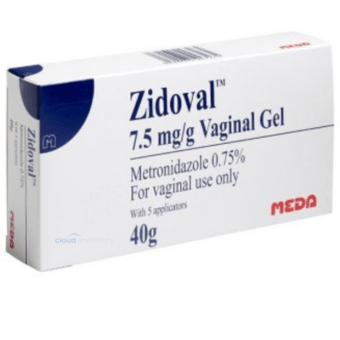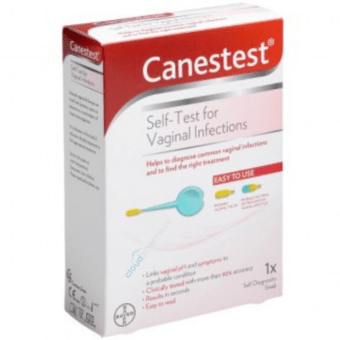Bacterial Vaginosis

More information
Introduction
Bacterial Vaginosis (BV) is a common infection that affects many women at some point in their lifetime. It occurs when the bacterial balance in your vagina changes, which can be caused by any number of factors. The vagina naturally has an acidic pH and the balance of various harmless bacteria is pretty delicate, which is why BV is so common.
Bacterial Vaginosis causes vaginal discharge and can increase the risk of getting sexually transmitted infections (STI). For women between the ages of 15 and 44, Bacterial Vaginosis is the most common vaginal condition.
While Bacterial Vaginosis is not typically serious, if you have the condition, you will need treatment.
Treatments
More information
Once an online consultation has been been approved by our medical team, our pharmacy will safely prepare and ship your treatment to you in discreet packaging using Royal Mail or DPD.
What Is Bacterial Vaginosis?
Bacterial Vaginosis occurs due to bacteria overgrowth. It is a form of vaginal inflammation that can increase the risk of getting STIs. The most common Bacterial Vaginosis symptom is vaginal discharge with a strong smell; this can be especially prevalent after sex.
The infection is not dangerous and some women even have it without realising it because they may not experience any noticeable symptoms. In time the infection goes away by itself, however, many women do experience symptoms and therefore decide to treat the infection with medication.
What Causes Bacterial Vaginosis?
Bacterial Vaginosis is caused by the overgrowth of anaerobic bacteria in the vagina. When anaerobes (‘bad bacteria’) outnumber lactobacilli (‘good bacteria’), the balance of microorganisms in the vagina can be disrupted and Bacterial Vaginosis can occur. It is thought that sexual activity is a risk factor for Bacterial Vaginosis, but the link is not fully understood.
You may be at a higher risk of getting Bacterial Vaginosis if you:
- Have multiple sex partners
- Have a new sex partner
- Have sex with other women
- Regularly rinse out your vagina with water, as this can contribute to anaerobic bacteria
- You don’t produce enough lactobacilli bacteria
Bacterial Vaginosis is not a sexually transmitted infection (as men can’t contract it and therefore can’t pass it on), however sex (especially with multiple partners) can trigger the infection, as it can mess with your vaginal bacteria balance. It’s important to practise safe sex, as BV can make you more vulnerable to PID and STIs such as HIV, chlamydia and herpes.
PID (Pelvic inflammatory disease) produces pelvic pain, bleeding between periods and swelling in the genital tract so if symptoms of BV worsen, then you may need to seek treatment for PID.
Bacterial Vaginosis Symptoms
Around half of women with Bacterial Vaginosis will not have any symptoms. Amongst the common symptoms of Bacterial Vaginosis are:
- A vaginal discharge that is of thin consistency and white, grey or green
- A bad-smelling odour from the vagina
- A burning feeling when urinating
- Vaginal itching
You should see a doctor if:
- The type of vaginal discharge is new and has an odour
- You have vaginal discharge and fever
- You have symptoms of Bacterial Vaginosis and have multiple sex partners
- You have symptoms of Bacterial Vaginosis and have a new sex partner
- You are currently using a self-treatment or over the counter treatment, and your symptoms have persisted
Bacterial Vaginosis Diagnosis
A diagnosis of Bacterial Vaginosis will usually involve a review of your medical history, during which your doctor may ask questions about any previous vaginal conditions or STIs you have had.
A pelvic examination may be performed, allowing your doctor to examine your vagina for infection signs. Your pelvic organs may be checked for signs of disease.
A vaginal discharge sample is used to check for anaerobic bacteria overgrowth in the vaginal flora. These secretions can then be examined by the doctor using a microscope, with any ‘clue cells’ (vaginal cells that are covered with bacteria, which are a sign of Bacterial Vaginosis) being identified.
Your vaginal pH may also be tested. This allows the doctor to check your vagina’s acidity. If you have a vaginal pH of 4.5 or higher, this is an indication of Bacterial Vaginosis.
Alternatively, if you are experiencing symptoms and need to test yourself for Bacterial Vaginosis, Canestest is a rapid self-test kit for Bacterial Vaginosis and thrush. Take the test at home and get immediate, 90% accurate results.
Bacterial Vaginosis vs Thrush
Thrush is a yeast infection that affects both men and women. It is common, typically harmless, and not classed as an STI. Like Bacterial Vaginosis, symptoms in women include vaginal discharge and vaginal itching.
Both Bacterial Vaginosis and thrush are common vaginal infections in women, and the causes of the conditions are related to the natural vaginal flora. Whereas Bacterial Vaginosis is caused by an imbalance of bacteria, thrush is caused by natural yeast overgrowth. As with Bacterial Vaginosis, a vagina with high acidity can contribute to overgrowth. The two conditions are caused by different types of microorganisms, and, consequently, require different treatment.
Bacterial Vaginosis in Pregnancy
Bacterial Vaginosis has been linked to premature deliveries in pregnant women, as well as low birth weight. If you develop Bacterial Vaginosis during pregnancy, there is also a small chance of miscarriage. It should be noted that in most pregnancies, Bacterial Vaginosis does not cause problems. If you are pregnant and notice a change in your vaginal discharge, you should talk to your doctor.
The condition may cause pelvic inflammatory disease, which is an infection of the fallopian tubes and uterus that could increase the risk of infertility.
How to Prevent Bacterial Vaginosis
There are several ways in which you can help to prevent Bacterial Vaginosis. These include:
- Not frequently washing your vagina with water can disrupt the bacterial balance in the vagina
- Minimising vaginal irritation by using mild soaps and unscented pads or tampons
- Avoiding STIs by using condoms and practicing safe sex
For more information about safe sex, please visit our STI clinic page.
Bacterial Vaginosis Treatment
If you have Bacterial Vaginosis, your doctor may prescribe one of these medications:
- Metronidazole tablets – Metronidazole 400 mg tablets are an antibiotic that can offer fast relief for Bacterial Vaginosis symptoms such as vaginal discharge and an unpleasant smell, before clearing the condition. A typical dosage for Bacterial Vaginosis is one tablet, twice per day, for seven days
- Zidoval Vaginal Gel – Metronidazole is also available in the form of the branded Zidoval Vaginal Gel. It contains 7.5 mg/g of the metronidazole antibiotic and is applied locally once per day, in the evening, over a five-day course. The treatment comes with five applicators to deliver the medication into the vagina
Both metronidazole tablets and Zidoval Vaginal Gel are prescription medications that are not available over the counter in the UK. Before you are issued with a prescription, your suitability for the treatments needs to be assessed by a doctor.
You can buy Bacterial Vaginosis treatments online at Cloud Pharmacy. After a consultation with our online prescriber, we can confirm your suitability and issue your prescription promptly, before sending your medication via our discreet, next-day delivery service.
Once the infection has cleared, there are a number of things you can do to prevent BV from coming back again. You should avoid synthetic materials, whether that be fabrics or cleaning products. Try to stick to loose cotton clothing, gentle washing detergents and natural products to wash your body and vagina with. To avoid Bacterial Vaginosis, avoid excessive vaginal cleaning (as it cleans itself), maintain good hygiene and always practice safe sex.
Guides
How it works

First...
Complete a quick eligibility check

Then...
Order your treatment

Finally.
Fast, confidential delivery to your door



















